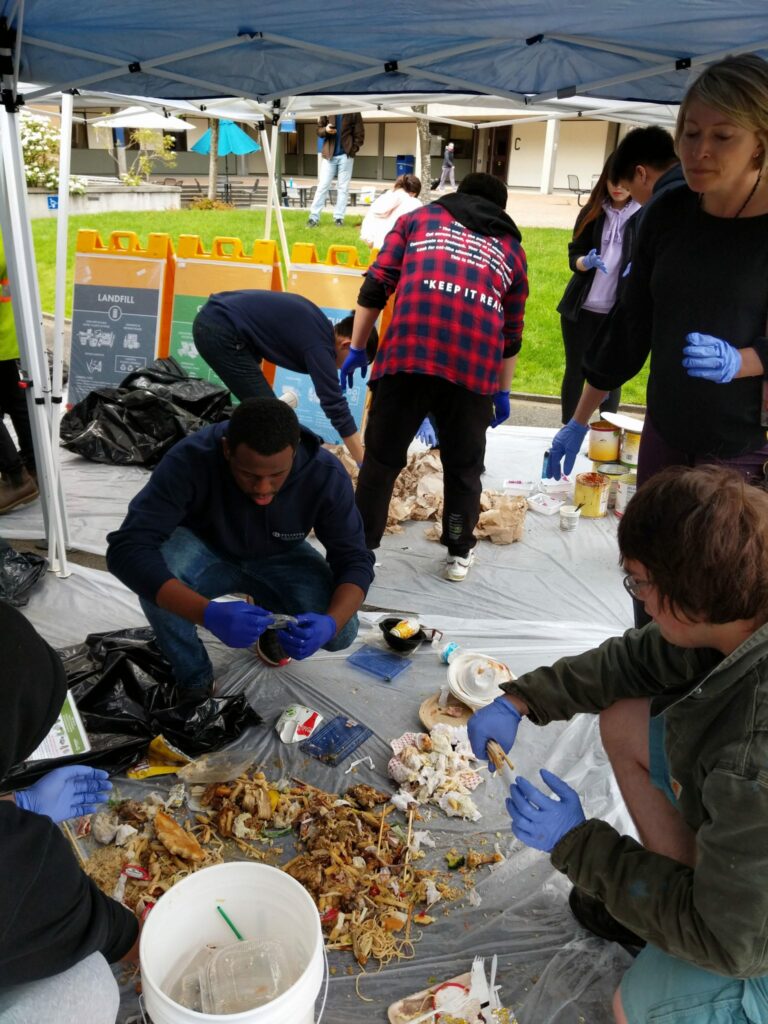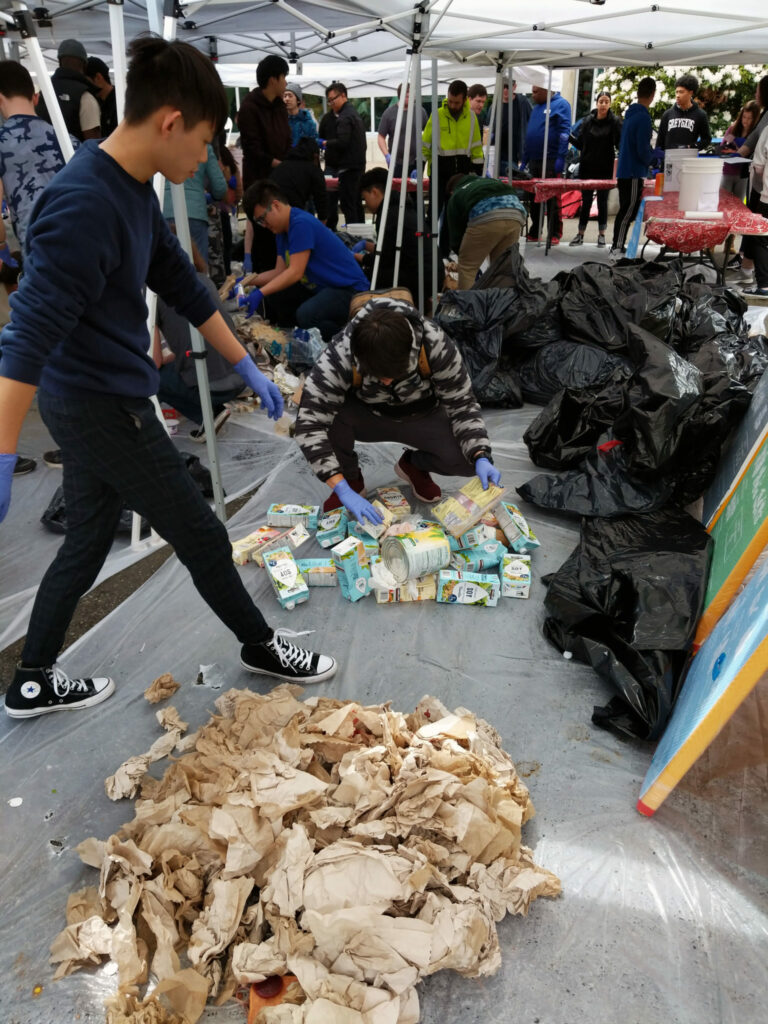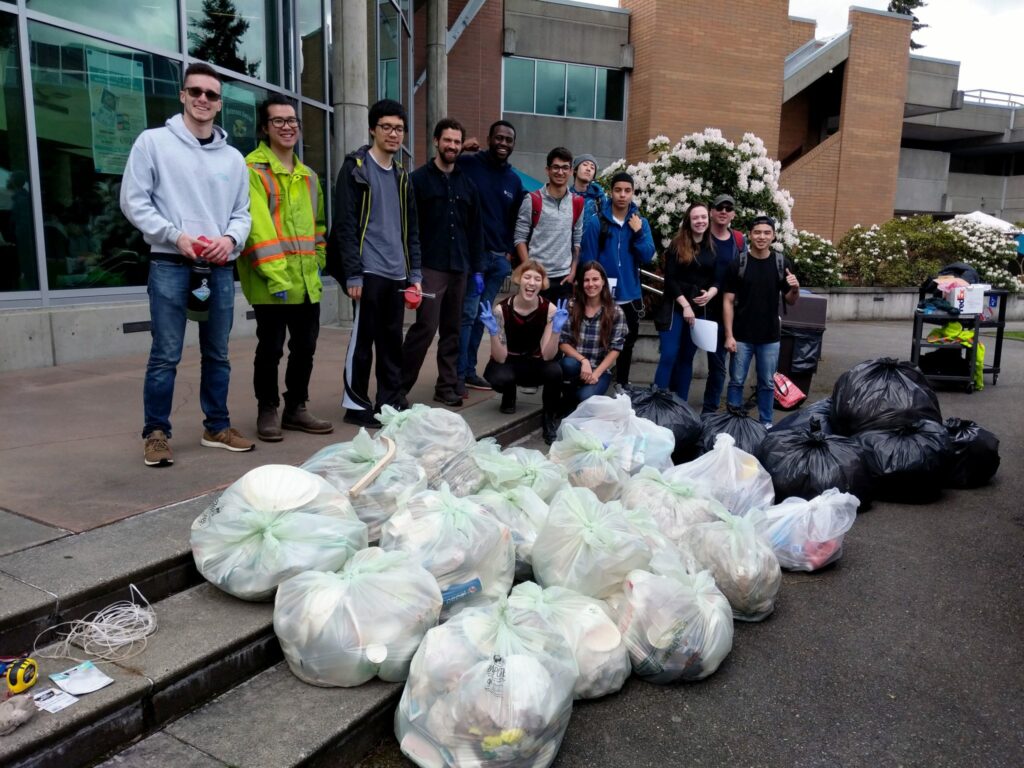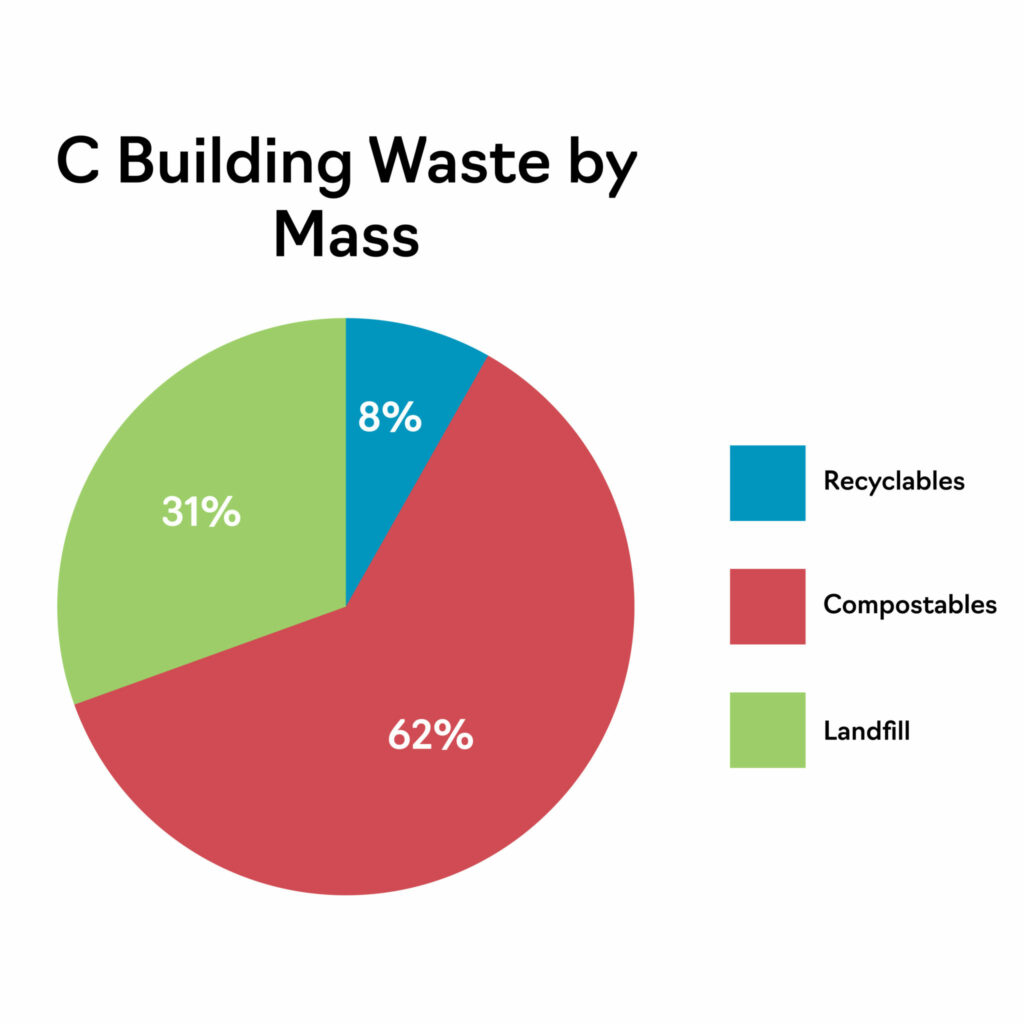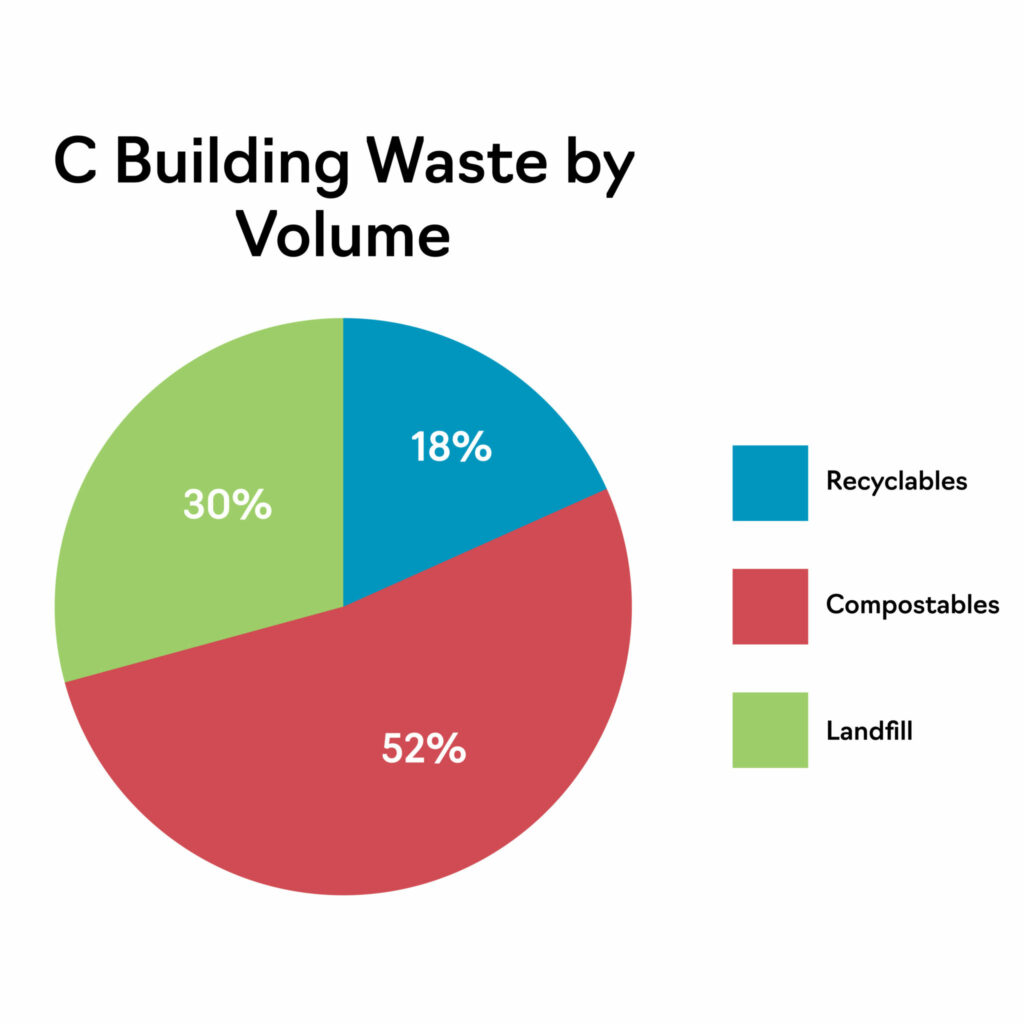Every Earth Week, The Office of Sustainability holds an annual Waste Audit event in front of the C Building. The Waste Audit consists of gathering all the C Building landfill bin’s waste from the previous day, and dumping it all out to see how much of it is mixed with recyclables and compostable items.
With the help of participants and classes we teach the importance of waste management and sorting and organize all the gathered waste correctly. The data and results are recorded and one of the classes writes up a press release.
Most Recent Press Release
Haste Creates Waste!
Written by Erin Nye
How by slowing down, and being more conscious of waste practices, BC students can contribute to more sustainable campus and a healthier environment
Bellevue College did an excellent job of engaging the entire campus and getting students involved in this year’s Earth Week. The Office of Sustainability made sure that entire week of April 22 – April 26 was filled with so many exciting events, special presentations, workshops, art, a farmer’s market, and so much more that was not only enjoyable, but extremely educational and impactful. One of the events that never fails to leave a lasting impact on participants is the annual earth week waste audit. Students from four different classes, including Mr. Glover’s environmental science class, along with teachers, faculty, and other volunteers joined efforts to participate in BC’s fourth annual waste audit “Conquering Mt. Trasnhmore” on Tuesday April 23rd . The waste audit involves a meticulous process of sorting through the trash collected from campus building C, distributing the trash into the proper waste categories (recycling, landfill, or compost), weighing the waste from each category, and recording those numbers. After the numbers are recorded, they are then analyzed and categories broken down into the mass and volume of landfill waste, recycling, and compostables. Doing a waste audit is incredibly important for many reasons. In general, it’s critical for Bellevue College to understand how the campus is doing regarding waste management, knowing the output/kind of waste the college actually contributes to, the areas that could use improvement, where the gaps are – what individuals on campus can be better educated on, and as a result, use all of this knowledge to figure out ways to reduce waste,implement better waste management strategies, and to have a more positive environmental impact overall. In completing the waste audit, students got the hands-on experience of learning how to properly sort trash, while also having the opportunity to fully understand the implications that come from not taking the time to do so. The results from the data right determined that the largest category of waste was compostables (Mass: 154.2lbs – Volume: 197.5gal.), followed by landfill (Mass: 77.5lbs– Volume: 111.5gal.), and least being recyclables (Mass: 18.8lbs – Volume: 68.5gal). The fact that 52% of the accounted volume of trash that was ended up in the landfill was actually compostable, 18% recyclable, and only 30% truly landfill waste represents just how much people on campus need to work on, and or, be educated on better waste practices. This data also reveals that there was more waste and compostables that ended up in landfill, and less in recycling, than in any other past years’ waste audits at BC. This increase in waste/compostables and decrease in recyclables is likely, in part, due to King County’s new rule change over the last year declaring that in order for recyclable materials to actually be eligible for recycling, they need to be clean, whole, and dry. As a result, a lot of what could have been recyclable ended up having to be thrown out because it didn’t meet that exact criteria. Therefore, a couple solutions to combat this increased responsibility would be for Bellevue College to provide the student population with education, training, and resources – like spaces to clean recyclables – in order to decrease the schools landfill waste production and increase responsible recycling efforts. Ultimately, it is going to come down to each student, and member of the BC community, making the conscious effort to do their individual part. By slowing down and taking more time to understand/act on the proper waste practices, placing trash is the right containers, and putting in the extra effort to clean off recyclables to make sure that they can actually be recycled, each person at Bellevue College can contribute to a more sustainable campus and healthier environment.
You can view and download the original link here!
Previous Press Release’s
Last Updated March 16, 2021

